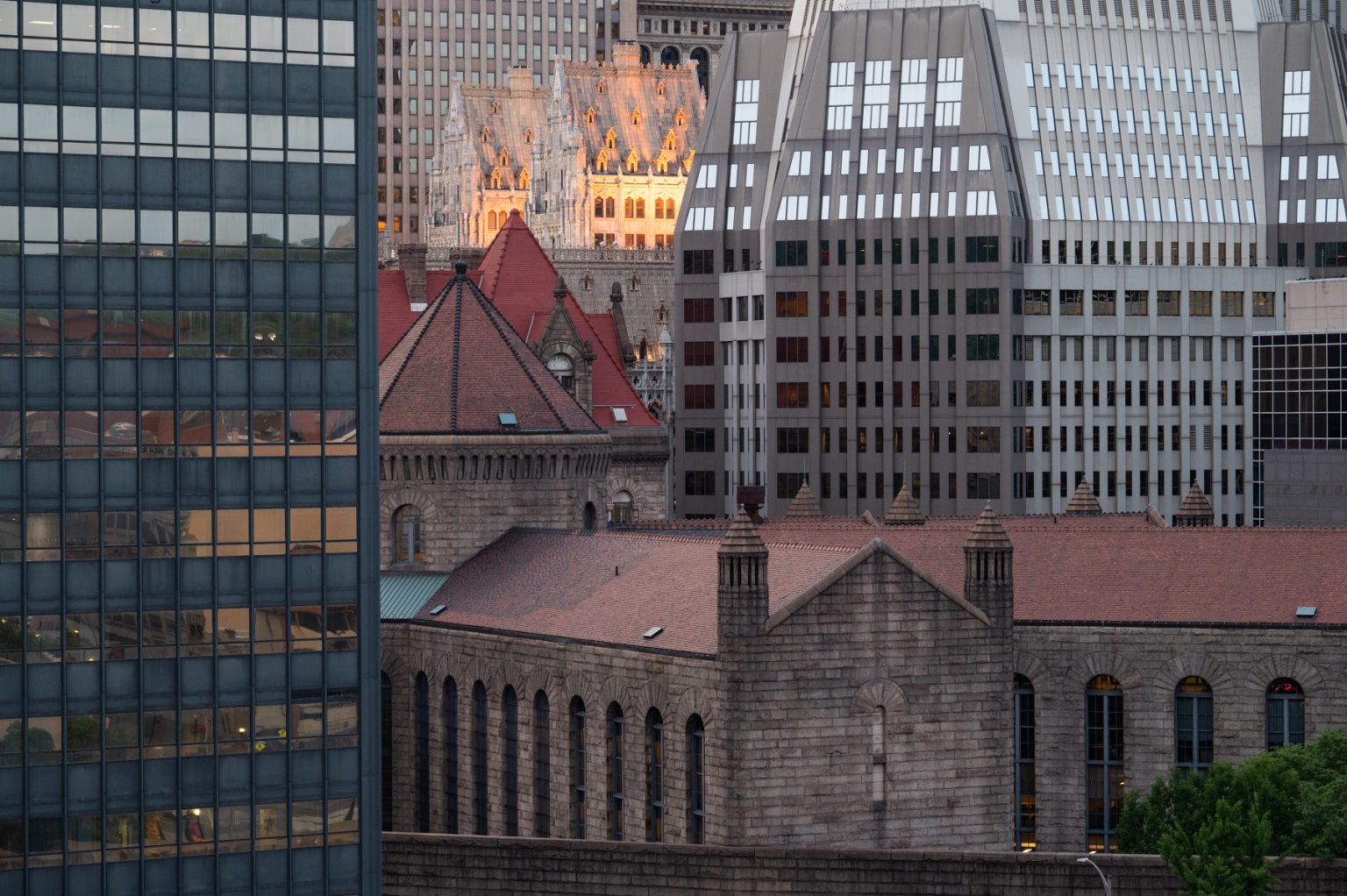The sunset reflects off of buildings and offices of downtown Pittsburgh, Monday, May 22, 2023. (Photo by Stephanie Strasburg/PublicSource)
The Pittsburgh Downtown Conversion Program has been amended in hopes of attracting more development.
by
Pittsburgh’s economic development agency Thursday approved a raft of tax-funded housing development initiatives throughout the city, with a special focus on the Downtown area.
The Urban Redevelopment Authority’s [URA] board of directors is looking to convert Downtown’s empty office spaces into apartments through tax breaks for potential developers and amending a conversion program that began in January but has only attracted one developer.
In January, the Pittsburgh Downtown Conversion Program was introduced to spur the conversion of office spaces that were considered underutilized. To do this, the program provided interested developers with $60,000 to $100,000 per unit for housing projects that reserved 20% of their listings to households that make no more than 80% of the area’s median income. For a household of one person, the area’s median income is $53,100; the income scales up to $100,000 for a household of eight.
In an attempt to attract more applicants, the URA on Thursday amended the program to increase the per-unit subsidy to $100,000 per unit. The funding increases if developers reserve units for lower area median incomes — with $150,000 available per unit if units are reserved for households making no more than 60% of the area median income and $200,000 for those making no more than 50%.
Greater Hill District funding

With the dust still settling around the Lower Hill District redevelopment, the URA board released the first set of funding that was put aside by the development team as part of their contribution to investing in the Hill District.
About $465,000 will go toward helping homeowners repair their houses in the Hill District with a priority given to those in need of critical repairs. The funds are part of the $7.1 million in the Greater Hill District Neighborhood Reinvestment Fund that was contributed by the developer behind the Lower Hill Development team in 2021. These contributions were made as part of the agreement to allow the Pittsburgh Penguins’ selected developer, Buccini/Pollin Group [BPG], to build the First National Bank Tower.

